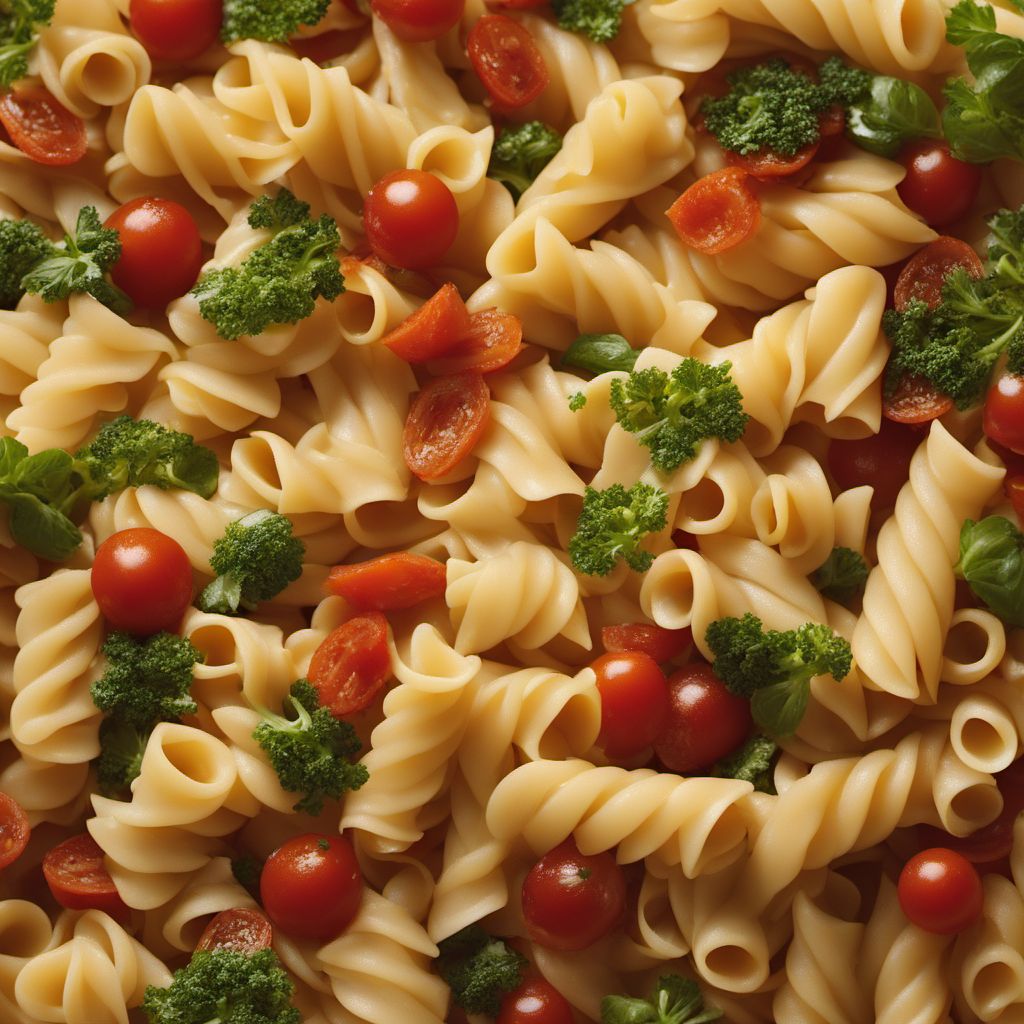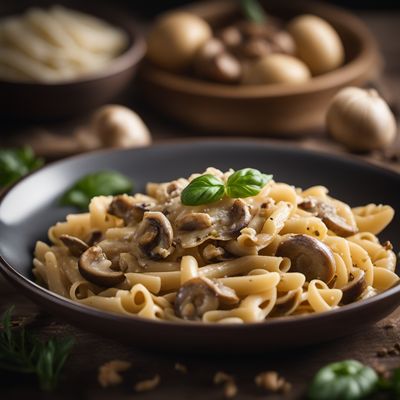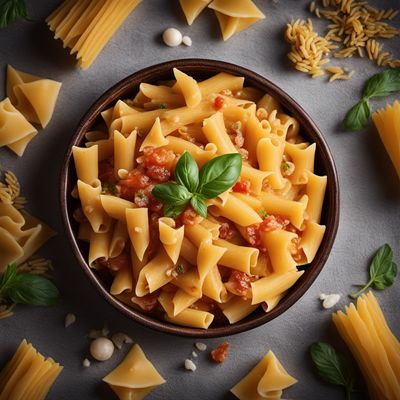
Ingredient
Pasta, cooked, with vegetables and cheese/cream
Creamy Delight with Pasta and Veggies
Pasta, cooked with vegetables and cheese/cream, is a versatile dish that combines al dente pasta with a variety of vegetables, such as bell peppers, zucchini, and mushrooms, in a creamy and cheesy sauce. The pasta absorbs the flavors of the sauce, while the vegetables add texture and freshness to the dish. It is a popular choice for both vegetarian and non-vegetarian eaters.
Origins and history
The origins of pasta can be traced back to ancient Italy, where it was first made by hand using durum wheat flour and water. Over time, pasta became a staple food in Italian cuisine and spread to other parts of the world through trade and exploration. The addition of vegetables and cheese/cream to pasta dishes is a more recent development, influenced by various regional and international culinary traditions.
Nutritional information
Pasta, cooked with vegetables and cheese/cream, is a satisfying and balanced meal that provides a good amount of carbohydrates, protein, and essential nutrients. The nutritional content varies depending on the type of pasta, vegetables, and sauce used.
How to select
When selecting pasta, opt for high-quality brands made from durum wheat semolina for the best texture and flavor. Look for pasta that is uniform in shape and free from any signs of damage or discoloration. For vegetables, choose fresh and vibrant produce that is free from blemishes or signs of wilting. The cheese or cream used should be of good quality and free from any off-putting odors or flavors.
Storage recommendations
To maintain the freshness of cooked pasta with vegetables and cheese/cream, store it in an airtight container in the refrigerator for up to 3-4 days. Reheat it gently in a saucepan or microwave, adding a splash of water or cream to prevent it from drying out. Avoid freezing, as the texture of the pasta may become mushy upon thawing.
How to produce
To produce pasta at home, combine durum wheat semolina flour with water to form a dough. Knead the dough until smooth, then roll it out and cut it into desired shapes. Boil the pasta in salted water until al dente, then drain and set aside. For the vegetables, grow them in a home garden or purchase them from local farmers. Cheese can be made by curdling milk and separating the curds from the whey, while cream can be obtained by skimming the fat from milk.
Preparation tips
When preparing pasta with vegetables and cheese/cream, cook the pasta until al dente, as it will continue to cook slightly when combined with the sauce. Sauté the vegetables until tender-crisp, then add the cooked pasta and the cheese or cream sauce. Toss everything together until well-coated and heated through. Season with salt, pepper, and any desired herbs or spices. Garnish with grated cheese, fresh herbs, or a drizzle of olive oil before serving.
Culinary uses
Pasta, cooked with vegetables and cheese/cream, is a versatile dish that can be customized to suit various preferences and dietary restrictions. It is commonly enjoyed as a main course or side dish in Italian, Mediterranean, and international cuisines.
Availability
Pasta is widely available in grocery stores and supermarkets worldwide. The availability of vegetables depends on the region and seasonality. Cheese and cream can be found in most dairy sections of stores.
More ingredients from this category

Pasta, cooked, with cheese/cream
Indulgent Creamy Pasta Delight

Pasta, cooked, with mushroom sauce
The Savory Delight: Pasta with Mushroom Sauce

Pasta, cooked, with vegetables
A Wholesome Delight: Pasta Infused with Vibrant Vegetables

Pasta, cooked, with mixed sauce
The Classic Comfort: Pasta with Mixed Sauce

Lasagna
The Layered Italian Delight